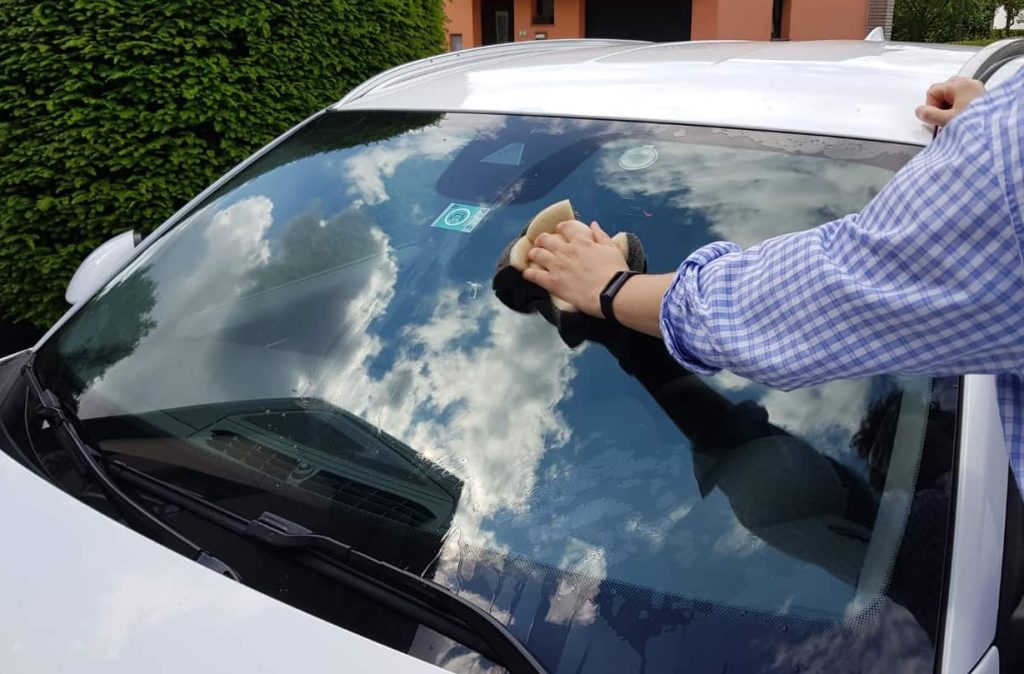When it comes to keeping your vehicle in top-notch condition, the care you provide extends beyond the engine and exterior aesthetics to the often-overlooked car windshield. Maintaining clear visibility is paramount for safe driving, prompting many car owners to question the compatibility of common household glass cleaners, such as Windex, with their car’s windshield. In this comprehensive guide, we’ll delve into the nuances of using Windex on your car windshield, exploring the pros and cons, alternative cleaning methods, and essential tips for a streak-free, damage-free windshield.
Table of Contents
- Understanding Windex Composition
- The Pros and Cons
- Safe Alternatives for Car Windshield Cleaning
- Tips for Using Windex Safely on Your Car Windshield
- Expert Tips for Safely Cleaning Your Car Windshield
- 1. Choose the Right Cleaner
- 2. Microfiber Magic
- 3. Mind the Weather
- 4. Gentle Application Techniques
- 5. Regular Maintenance Matters
- 6. Inspect Wiper Blades
- 7. Avoid Ammonia on Tinted Windows
- 8. DIY Solutions Done Right
- 9. Regularly Replace Cleaning Tools
- 10. Dry with Care
- 11. Consider Professional Cleaning
- 12. Protect Surrounding Surfaces
- 13. Inspect for Damage
- 14. Use Windshield Water Repellent
- 15. Consult Your Owner’s Manual
- Frequently Asked Questions About Cleaning Your Car Windshield
- 1. Can I Use Windex on My Car Windshield?
- 2. What Cleaner Is Best for Car Windshields?
- 3. How Often Should I Clean My Car Windshield?
- 4. Can I Use Vinegar to Clean My Car Windshield?
- 5. Does Cleaning in Direct Sunlight Affect Results?
- 6. How Do I Clean Tinted Car Windows Safely?
- 7. Can I Use Newspaper to Clean My Windshield?
- 8. Are There Special Considerations for Rain Sensors?
- 9. What Should I Do About Stubborn Stains on My Windshield?
- 10. Can I Clean My Windshield in Freezing Temperatures?
- Conclusion
Understanding Windex Composition
Windex, a trusted glass-cleaning brand, boasts a formula primarily consisting of water, isopropanolamine, and, notably, ammonia. While ammonia is effective in breaking down grime and dirt on household windows, its use on automotive glass requires careful consideration. Automotive glass has unique characteristics and coatings, making it susceptible to damage from certain cleaning agents.
The Pros and Cons
Pros of Using Windex
- Effective Cleaning: Windex is renowned for its ability to deliver a streak-free shine, ensuring crystal-clear visibility for the driver.
- Readily Available: One of the major advantages of Windex is its widespread availability, making it a convenient choice for quick cleaning needs.
Cons of Using Windex
- Ammonia Content: The high ammonia content in Windex raises concerns for car owners. Ammonia can potentially damage sensitive car components, including rubber seals and trims.
- Not Car-Specific: Windex is not specifically formulated for automotive use. Car windshields demand a cleaner that addresses their unique challenges, such as exposure to various weather conditions and environmental contaminants.
Safe Alternatives for Car Windshield Cleaning
To ensure the longevity of your car glass and maintain optimal visibility, consider the following alternatives to Windex:
1. Automotive Glass Cleaners
Investing in a glass cleaner specifically designed for car windshields is a prudent choice. These cleaners are formulated to be gentle on automotive glass while effectively removing contaminants.
2. DIY Vinegar Solution
For those inclined towards homemade solutions, a mixture of equal parts water and white vinegar serves as an excellent alternative. Vinegar is a mild acid that can break down residues without harming your car’s windshield.
3. Rubbing Alcohol Solution
A mixture of rubbing alcohol and water can effectively cut through grease and grime. This solution evaporates quickly, leaving behind a clean and streak-free windshield.
Tips for Using Windex Safely on Your Car Windshield
If you find yourself set on using Windex for your car windshield, follow these precautions to minimize potential damage:
- Dilution is Key: Mix Windex with water to reduce the concentration of ammonia. This diluted solution is gentler on your car’s surfaces.
- Avoid Direct Sunlight: Choose a shaded area for cleaning to prevent the cleaner from drying too quickly, reducing the risk of streaks on your windshield.
- Gentle Application: Opt for a soft microfiber cloth or sponge when applying Windex. This minimizes the potential for scratches, preserving the integrity of your car’s glass.
Expert Tips for Safely Cleaning Your Car Windshield
Maintaining a spotless and damage-free car windshield goes beyond just grabbing the nearest cleaner. Here are some expert tips to ensure you clean your windshield safely and effectively:
1. Choose the Right Cleaner
Select a glass cleaner specifically designed for automotive use. These formulations are crafted to cut through road grime without compromising the integrity of your car’s glass.
2. Microfiber Magic
Invest in high-quality microfiber cloths for cleaning. They are gentle on your windshield, effectively lifting dirt without leaving scratches behind.
3. Mind the Weather
Avoid cleaning your windshield in direct sunlight or extreme temperatures. Opt for a shaded area to prevent the cleaner from drying too quickly, reducing the risk of streaks. (See Also: How Much Does It Cost to Wrap a Jeep Wrangler? Your Complete Guide to Wrapping Expenses)
4. Gentle Application Techniques
Apply cleaning solutions with a light touch. Excessive pressure may lead to scratches, compromising the clarity of your windshield over time.
5. Regular Maintenance Matters
Don’t wait for your windshield to be visibly dirty. Regular cleaning helps prevent the buildup of contaminants, making the cleaning process easier each time.
6. Inspect Wiper Blades
Ensure your wiper blades are in good condition. Damaged or worn-out blades can contribute to streaking and reduced visibility.
7. Avoid Ammonia on Tinted Windows
If your car has tinted windows, steer clear of cleaners containing ammonia. Ammonia can degrade the tint and affect its appearance over time.
8. DIY Solutions Done Right
When opting for homemade solutions like vinegar and water, ensure the ratios are accurate. Too much acidity can be harmful, while too little might render the mixture ineffective.
9. Regularly Replace Cleaning Tools
Keep your cleaning tools in optimal condition. Replace worn-out cloths and sponges to maintain their effectiveness.
10. Dry with Care
After cleaning, use a dry microfiber cloth to remove any remaining moisture. This helps prevent water spots and ensures a streak-free finish.
11. Consider Professional Cleaning
If you’re unsure about the right cleaning methods or if your windshield has stubborn stains, consider professional cleaning services for a thorough and expert touch.
12. Protect Surrounding Surfaces
When applying cleaners, be mindful of surrounding surfaces like painted areas and rubber trims. Some cleaners may cause damage, so it’s essential to wipe off any overspray promptly.
13. Inspect for Damage
Regularly inspect your windshield for chips or cracks. Promptly addressing such issues prevents them from worsening and compromising the structural integrity of the glass. (See Also: How Much to Wrap a Jeep Renegade: Cost Guide and Expert Tips)
14. Use Windshield Water Repellent
Apply a windshield water repellent to enhance visibility during rainy conditions. These products help water bead and roll off the glass, improving overall driving safety.
15. Consult Your Owner’s Manual
Always refer to your vehicle’s owner’s manual for specific recommendations and warnings regarding windshield cleaning. Manufacturers often provide valuable insights into maintaining your car’s components.
Incorporating these expert tips into your windshield cleaning routine ensures not only a pristine view of the road but also the longevity of your car’s glass surfaces. By adopting these practices, you’ll drive with confidence, knowing your windshield is well-maintained and ready to face the elements.
Frequently Asked Questions About Cleaning Your Car Windshield
Keeping your car windshield clean is essential for safe driving. Here are some common questions regarding windshield cleaning, answered to help you maintain optimal visibility on the road.
1. Can I Use Windex on My Car Windshield?
Answer: While Windex is effective for household glass, it’s not the ideal choice for car windshields. The high ammonia content can potentially damage automotive components.
2. What Cleaner Is Best for Car Windshields?
Answer: Choose a glass cleaner specifically formulated for automotive use. These cleaners are designed to cut through road grime without harming your car’s glass.
3. How Often Should I Clean My Car Windshield?
Answer: Regular cleaning is essential. Aim for at least once a week to prevent the buildup of contaminants, making each cleaning session more effective.
4. Can I Use Vinegar to Clean My Car Windshield?
Answer: Yes, a vinegar and water solution is a safe and effective alternative. Mix equal parts water and white vinegar for a gentle yet powerful homemade cleaner.
5. Does Cleaning in Direct Sunlight Affect Results?
Answer: Yes, cleaning in direct sunlight can cause the cleaner to dry too quickly, leading to streaks. Choose a shaded area for optimal results.
6. How Do I Clean Tinted Car Windows Safely?
Answer: Avoid cleaners with ammonia if you have tinted windows, as ammonia can degrade the tint. Opt for tint-safe cleaners or DIY solutions. (See Also: Can You Vinyl Wrap Jeep Hardtop? A Step-by-Step Guide to Transforming Your Ride)
7. Can I Use Newspaper to Clean My Windshield?
Answer: While some people swear by it, using newspaper can leave ink residues. It’s safer to stick with microfiber cloths for streak-free results.
8. Are There Special Considerations for Rain Sensors?
Answer: Yes, be cautious around rain sensors. Use cleaners that won’t leave a residue, as this can interfere with the sensor’s functionality.
9. What Should I Do About Stubborn Stains on My Windshield?
Answer: For stubborn stains, consider professional cleaning services. They have the expertise and tools to tackle tough stains effectively.
10. Can I Clean My Windshield in Freezing Temperatures?
Answer: It’s best to avoid cleaning your windshield in freezing temperatures, as water-based cleaners can freeze on contact, leading to streaks.
These FAQs provide valuable insights into proper windshield cleaning practices. Following these guidelines ensures a clear and safe driving experience while preserving the longevity of your car’s glass surfaces.
Conclusion
In conclusion, the choice of whether to use Windex on your car windshield depends on your risk tolerance and commitment to proper care. While Windex can be effective for household glass, its use on car windshields necessitates caution. Opting for car-specific cleaners or DIY solutions ensures a safer and more tailored approach to automotive glass care.
Remember, the goal isn’t just a clean windshield but the longevity of your vehicle’s glass components. By choosing cleaning methods wisely, you contribute to a safer driving experience and maintain the visual aesthetics of your car. So, next time you’re faced with a smudged windshield, armed with this knowledge, you can make an informed decision on the best approach to achieve that optimal clarity for the road ahead.



